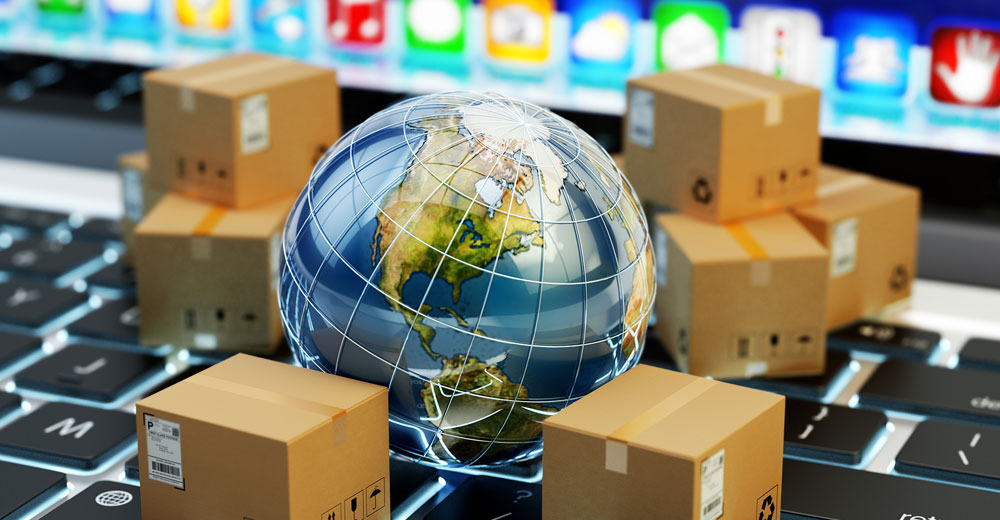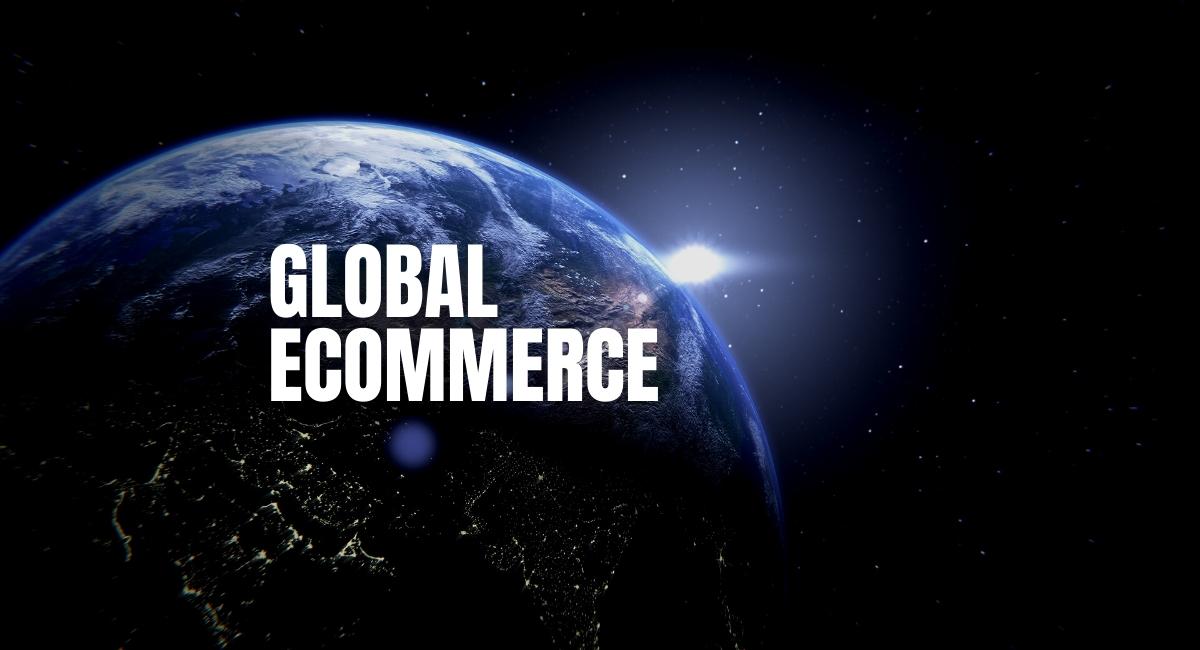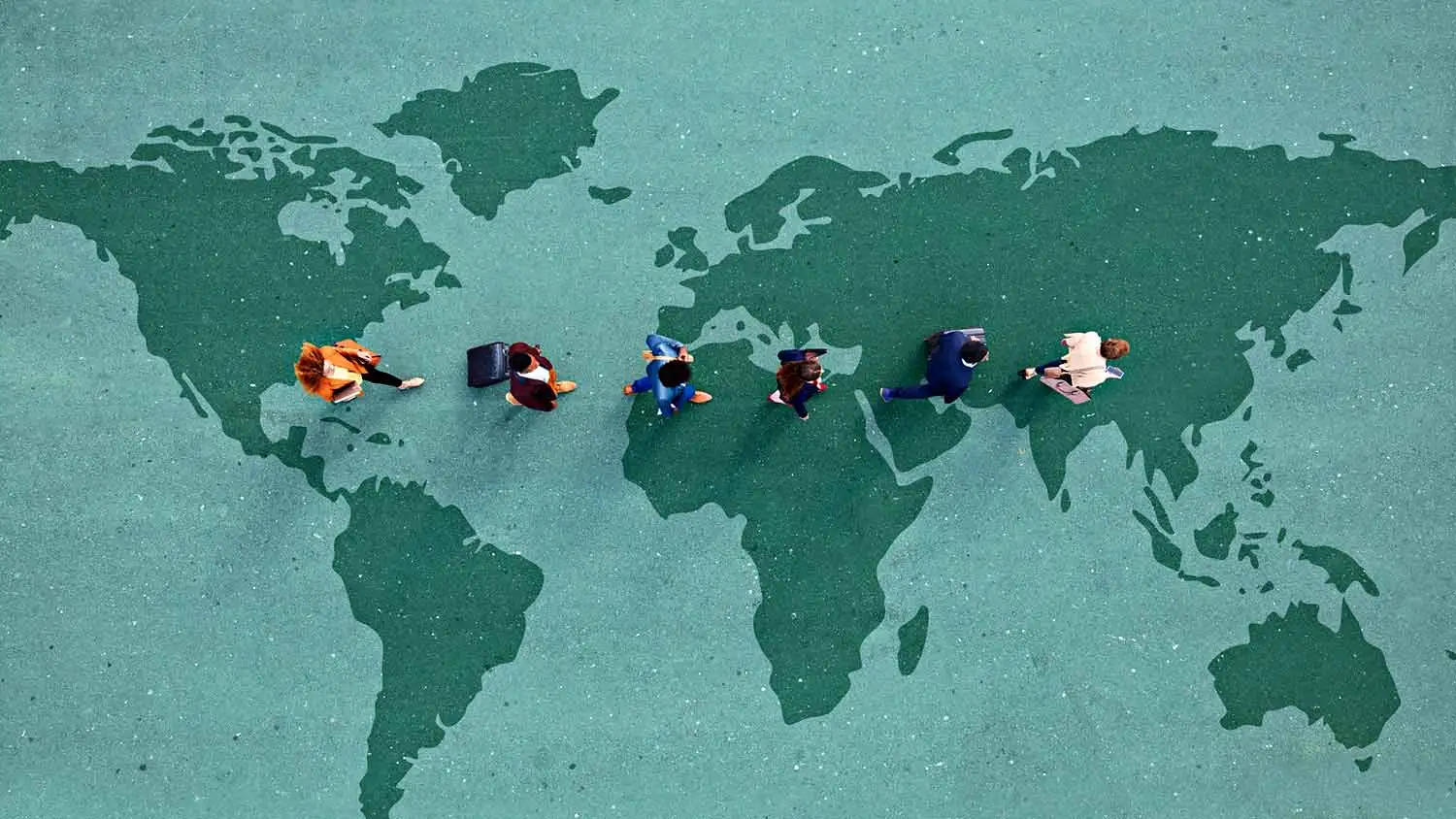Global Commerce: Understanding Dynamics International Trade

Global Commerce, global commerce serves as the lifeblood of the global economy, driving economic growth, fostering innovation, and promoting prosperity among nations. From the exchange of goods and services to the flow of capital and information, international trade forms the backbone of the modern global economy. Let’s explore the intricacies of global commerce, its drivers, challenges, and significance in today’s world.

The Foundations of Global Commerce
Global commerce refers to the exchange of goods, services, and capital across national borders, transcending geographical, cultural, and political boundaries. It encompasses a wide range of activities, including trade in goods such as automobiles, electronics, and agricultural products, as well as trade in services such as finance, tourism, and telecommunications. At its core, global commerce is driven by the principles of comparative advantage, specialization, and market efficiency, which enable countries to maximize their economic potential and achieve higher levels of productivity and growth through trade.
Key Players and Participants
Several key players and participants shape the landscape of global commerce, including:
- Governments: National governments play a central role in regulating and facilitating international trade through trade policies, tariffs, and regulations. They negotiate trade agreements, establish trade barriers, and provide support and incentives for businesses engaged in global commerce.
- Multinational Corporations (MNCs): MNCs are major drivers gengtoto of global commerce, operating across multiple countries and regions to produce, distribute, and sell goods and services on a global scale. They leverage economies of scale, access to resources, and market knowledge to expand into new markets and gain competitive advantages.
- International Organizations: International organizations such as the World Trade Organization (WTO), International Monetary Fund (IMF), and World Bank play a critical role in shaping global commerce by setting rules and standards, providing financial assistance, and facilitating cooperation and coordination among member countries.
- Consumers: Consumers play a crucial role in driving demand for goods and services in the global marketplace. Their preferences, purchasing power, and consumption patterns influence businesses’ decisions regarding product development, marketing, and pricing strategies.
Drivers of Global Commerce
Several factors contribute to the growth and expansion of commerce, including:
- Technological Advancements: Advances in transportation, communication, and information technology have transformed global commerce by reducing trade barriers, facilitating supply chain integration, and enabling real-time communication and transactions across borders.
- Trade Liberalization: Trade liberalization efforts, including the reduction of tariffs, quotas, and other trade barriers, have expanded market access and promoted free trade, fostering greater competition, efficiency, and innovation in the global marketplace.
- Globalization: The process of globalization, characterized by increased interconnectedness and interdependence among countries, has accelerated the flow of goods, services, and capital across borders, creating new opportunities for businesses and consumers alike.
- Specialization and Comparative Advantage: Countries specialize in the production of goods and services in which they have a comparative advantage, based on factors such as natural resources, labor skills, and technological capabilities. This specialization enables countries to maximize efficiency, productivity, and economic welfare through trade.

Challenges and Considerations
Despite its benefits, global commerce also presents challenges and considerations, including:
- Trade Barriers: Trade barriers, including tariffs, quotas, and non-tariff barriers, hinder market access and limit the benefits of trade, particularly for developing and least-developed countries. Addressing trade barriers and promoting trade facilitation are essential for unlocking the full potential of commerce.
- Income Inequality: Global commerce can exacerbate income inequality within and among countries, as the benefits of trade may not be evenly distributed across society. Ensuring that the gains from trade are equitably shared and addressing disparities in income, wealth, and opportunity are critical for promoting inclusive and sustainable development.
- Environmental Impact: Global commerce can have significant environmental consequences, including greenhouse gas emissions, deforestation, and pollution. Adopting sustainable practices, promoting green technologies, and integrating environmental considerations into trade policies are essential for mitigating the environmental impact of global commerce.
- Geopolitical Tensions: Geopolitical tensions, conflicts, and trade disputes among countries can disrupt global commerce, leading to market volatility, supply chain disruptions, and economic uncertainty. Promoting dialogue, cooperation, and conflict resolution mechanisms is essential for safeguarding the stability and predictability of the global trading system.
Global commerce plays a central role in driving economic growth, promoting prosperity, and fostering cooperation among nations. By facilitating the exchange of goods, services, and capital across borders, commerce creates opportunities for businesses to expand into new markets, consumers to access a wide range of products and services, and countries to harness their comparative advantages and achieve higher levels of productivity and growth. However, addressing the challenges and considerations associated with global commerce, including trade barriers, income inequality, environmental impact, and geopolitical tensions, requires collective action, dialogue, and cooperation among governments, businesses, and civil society stakeholders to ensure that the benefits of trade are shared equitably and sustainably for the prosperity of all.

Advantages
- Market Access and Expansion: Global commerce opens up new markets and opportunities for businesses to expand their reach beyond domestic borders. Access to a broader customer base allows businesses to increase sales, revenue, and profitability, driving economic growth and competitiveness.
- Economies of Scale and Efficiency: By operating on a global scale, businesses can achieve economies of scale through mass production, streamlined supply chains, and cost efficiencies. This leads to lower production costs, higher productivity, and improved efficiency, benefiting consumers through lower prices and greater product variety.
- Specialization and Comparative Advantage: commerce enables countries to specialize in the production of goods and services in which they have a comparative advantage, based on factors such as natural resources, labor skills, and technological capabilities. This specialization promotes efficiency, innovation, and productivity, leading to higher standards of living and economic welfare.
- Technology and Innovation: Global commerce drives technological advancements and innovation by fostering competition, collaboration, and knowledge exchange among businesses and industries worldwide. Advances in transportation, communication, and information technology have transformed supply chains, logistics, and business operations, leading to higher levels of productivity and competitiveness.
- Diversification and Risk Management: Engaging in global commerce allows businesses to diversify their revenue streams and reduce reliance on domestic markets, mitigating risks associated with economic downturns, market fluctuations, and geopolitical uncertainties. Diversification enhances resilience and adaptability, enabling businesses to navigate challenges and capitalize on opportunities in diverse markets.
Disadvantages
- Trade Barriers and Protectionism: Global commerce faces barriers such as tariffs, quotas, and non-tariff barriers, which hinder market access and restrict the flow of goods and services. Protectionist policies and trade disputes among countries can lead to market distortions, reduced competition, and increased costs for businesses and consumers.
- Income Inequality and Labor Issues: commerce can exacerbate income inequality within and among countries, as the benefits of trade may not be evenly distributed across society. Labor issues such as job displacement, wage stagnation, and working conditions in global supply chains raise concerns about social equity and workers’ rights, requiring measures to address these challenges and ensure fair labor standards.
- Environmental Impact: Global commerce has significant environmental consequences, including greenhouse gas emissions, deforestation, and pollution. The expansion of global supply chains and transportation networks contributes to environmental degradation, resource depletion, and biodiversity loss, necessitating sustainable practices and policies to minimize the environmental footprint of global commerce.
- Cultural Homogenization: The proliferation of global brands and products can lead to cultural homogenization and the erosion of cultural diversity and heritage. Local businesses and industries may struggle to compete against multinational corporations, leading to the loss of traditional knowledge, skills, and practices.
- Geopolitical Tensions and Security Risks: commerce is susceptible to geopolitical tensions, conflicts, and security risks, which can disrupt supply chains, increase costs, and undermine confidence in the global trading system. Trade disputes, sanctions, and geopolitical rivalries pose challenges to international cooperation and stability, requiring diplomatic efforts to de-escalate tensions and promote peaceful resolution.
Conclusion
Global commerce offers significant opportunities for economic growth, innovation, and prosperity, but it also poses challenges and risks that must be addressed to ensure sustainable and inclusive development. By leveraging the advantages of global commerce while mitigating its disadvantages, governments, businesses, and civil society stakeholders can work together to build a more resilient, equitable, and sustainable global economy. Finding the right balance between opportunities and challenges is essential for realizing the full potential of global commerce and fostering shared prosperity for all.
Read More Article About “World ASMR Day: Celebrating the Phenomenon of Autonom“




Leave a Comment